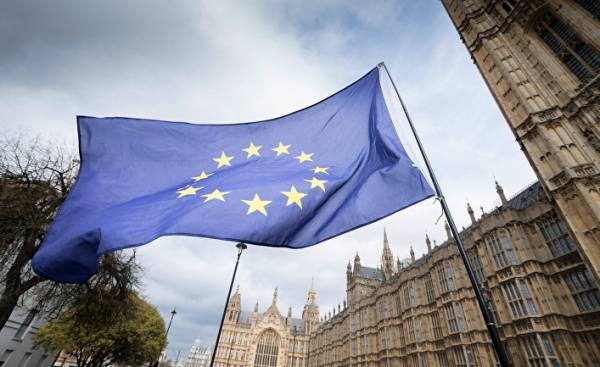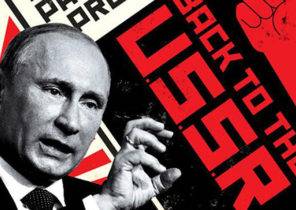
Donald trump, candidate, foreign to both democratic and Republican elite, was elected President in the United States — one of the most durable of the world’s democracies.
Emmanuel macron and marine Le Pen are fighting for the Elysee Palace, leaving on the side of the classic party titans of French politics.
Nigel Farage of UKIP (independence party of the United Kingdom) was the main initiator of Pexit, the most important geopolitical event in Europe since the fall of the Berlin wall.
The recent elections in Austria and the Netherlands took place in an atmosphere of “antimainstream”.
In the West we are witnessing serious dislike of leaders and ideas relevant to the establishment. All that until recently seemed unshakable: North American bipartisanship, the dynamics of EU integration, the sacredness of presidential campaigns — is eclipsed by the fact that disparate from traditional policies.
Today, the world belongs to “outsiders”. Those opposed to a “situation”. However, this “exclusion” is multi-faceted.
In this context, the policy has undergone several metamorphoses. The romantic ideal of revolution is no longer included in the list of the main query.
Despite the fact that it was possible to imagine in the world of social networking, political suggestions and criticism are of a more local character. You know, what and how should be done in a private area. Already less on the level of the Federal unit (state) or country. Much less in the world.
Unlike many of the unifying initiatives that arose in the course of “extensive globalization” — for example, the ideal of freer flows of goods, services, capital and people — the “outsider” trend in the US and Europe is more private than General, more immediate than strategic in nature.
Of course, trump, presidential elections in France and Pexit are makeprimary outsideration, but this trend is even more tangible at the level of Executive or legislative power within the framework of municipalities or States/provinces.
In their everyday disputes outsider policy is no better than a large system or a global solution. In addition to this “epidermal” proximity is another aspect of politics as an instrument for the protection of aesthetic or professional award.
Hence in elections for the various positions we see the success of candidates who were previously taxi drivers, athletes, television celebrities or the leaders of the football clubs. And here, without a doubt, technology and social networks also have a extraordinary influence on the outsider vector.
The aesthetic relationship, in the words of the great French sociologist Michel Maffesoli, enhances the affinity of outsiders to their communities in Facebook or Twitter.
In many cases, traditional journalistic media give way to other channels, provide a link outsiders with those who make up their “cloud”. This thread is more important than “information”, is “approval.”
Here you can talk about significant transformation. Sources of news or analysis, once limited by the wording of any publication, today disappeared in an endless stream sites, news agencies, blogs, research, universities and companies from a variety of fields. In short, in the virtual space.
In the same way to an environment where consumers of information are distributed by different types depending on the media format (reader, listener, viewer, Internet user), due to technological convergence, gradually condensed.
The media as a synonym of the press are the twin sister of freedom of speech. This identity invariably is fueled by the understanding that free discussion of ideas (which media provides the platform) develops a critical view and suggestions is the goal in the highest degree political.
Meanwhile, the problem of the survival of media companies provoked a shift in journalistic axis in the direction of entertainment, thus emphasizing the relationship that exists between “national interest and public interest”. Regarding the latter, there is an obvious tendency to all sorts of horrors, the banalities, the TV trash and hate sites. The ideal ecosystem for some outsiders.
Indeed, in the policy of the elected positions, we observe a relative decrease in the importance of policy statements and building the image of the candidate on the basis of empathy marketing.
Social networks, given their immediate and superficial manner, contribute to such “ephemeral”. And new technologies — convergence. As much good, many bad.
Mentioned the proximity helps to reveal the personality, but at the same time, it emphasizes differences, mainly civilization. It if use still topical formulation of Samuel Huntington, the primary fuel for contemporary conflict.
The appearance of this phase outsideration in the West and its impact on international relations is amazing. Of course, the boundaries have not gone away. But they become more porous. States that support their existence on the basis of the duality of inner and outer, feel so lost due to their own physical, cultural and macroeconomic vulnerability.
Their boundaries melt under the influence of technological, financial and cultural interactions, resulting in new forms of synthesis, at times enriching, at times fragmented.
On the other hand, they generate the desire to preserve local traditions and peculiarities — in the context of a high degree of tolerance should be welcomed, if the world wishes to be plural and diverse.
It is impossible not to see these signs in their potentially dangerous version in the rise of trump, Le Pen and in the chauvinist motives, which were the engines Brakcet.
The fact that Brazil, as confirmed by history, often prefers to go against international trends, perhaps, is good news.
“Outsider” can mean more than just “unconventional politician” or “not tied to the major parties”. This notion can also imply the opposite of what the country is, unfortunately, widespread and accepted.
To condemn populism, macroeconomic experimentation and clan-based political economy it means to be an outsider — in fact, in Brazil this triad has long been “mainstream”.
In our country, to be “against the current situation” means primarily, to give a wide-ranging creativity and productivity. In this sense, the emergence of the outsider for Brazil can be a great news.







